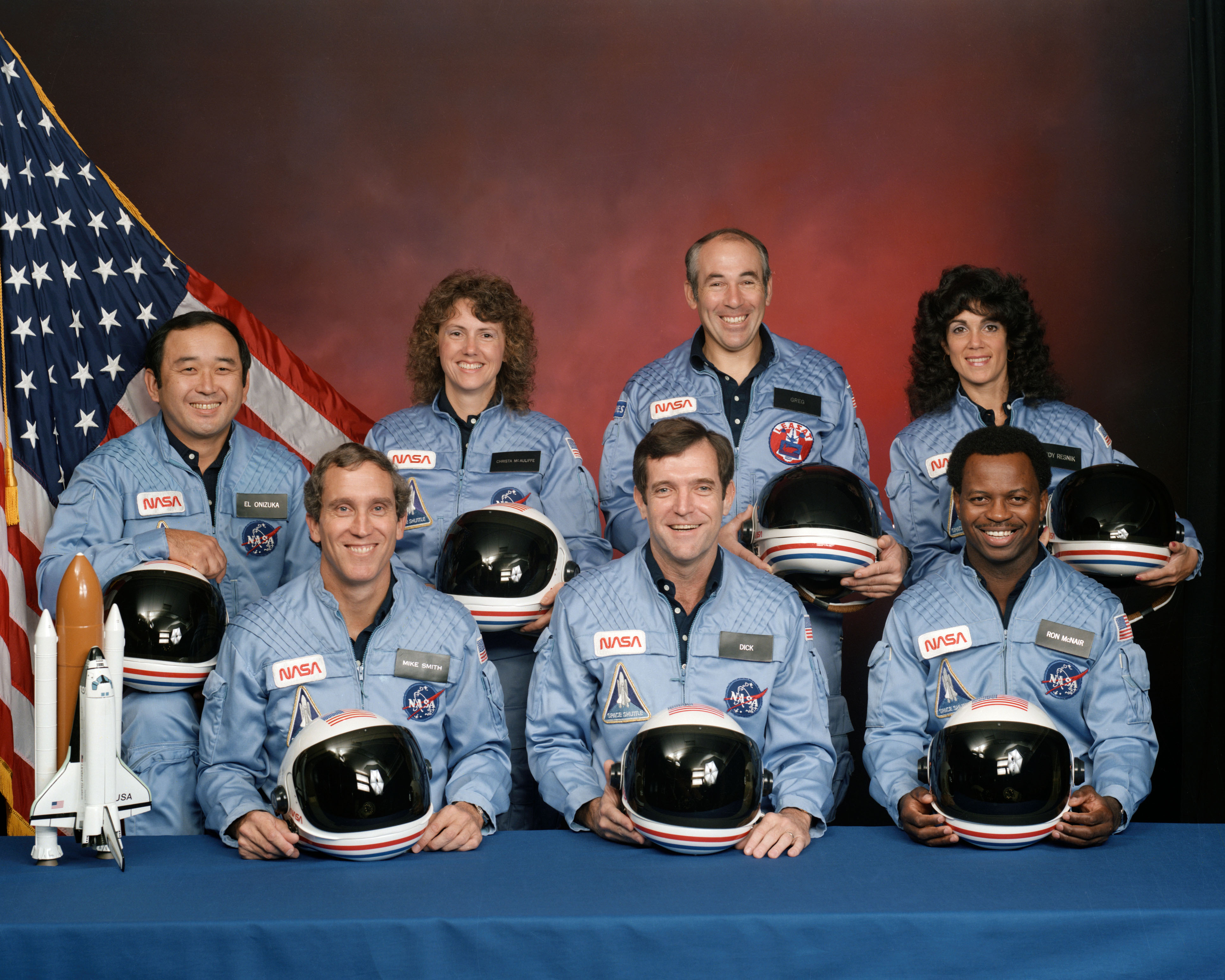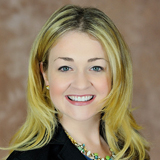
The STS-51L crewmembers are: in the back row from left to right: Mission Specialist, Ellison S. Onizuka, Teacher in Space Participant Sharon Christa McAuliffe, Payload Specialist, Greg Jarvis and Mission Specialist, Judy Resnik. In the front row from left to right: Pilot Mike Smith, Commander, Dick Scobee and Mission Specialist, Ron McNair.
My first memory of space exploration is one of total amazement and devastation. I remember that chilly January day in 1986 when my kindergarten class sat around our classroom TV to watch the launching of the Space Shuttle Challenger. When it broke apart 73 seconds into its tenth mission, it was really difficult to understand what exactly had happened. At the age of six, I found it challenging to grasp the fact that this mission was so important because it was the first time that a civilian school teacher had been included as one of the seven crew members on board. It was all the more devastating because it was the first of two shuttles to be destroyed in flight, the other being Columbia in 2003.
Despite the tragedies of the Space Shuttle Challenger, and later Columbia, where the world was shocked into being reminded of the dangers of space exploration, I believe that the science of space exploration is important not only to satisfy man’s curiosity of the great beyond, but also for the future of the earth and all of us living on it. The much needed continuation of space exploration promotes earth and space science education and inspires a new generation who will want to grow up to be astronauts, rocket scientists, and engineers.
Growing up in south Florida, I had the opportunity to visit the Kennedy Space Center numerous times, but I have never met an astronaut. This Thursday, November 3, at 2:30 p.m., former NASA astronaut, Dr. Sandra Magnus, will give a presentation, “Perspectives from Space,” for the Lifelong Learning Society. Now, years after my childhood trips to the Space Center, I will have an up-close encounter with a real astronaut!
Dr. Magnus grew up in a small town in southern Illinois and, from a young age, dreamed of being an astronaut. Though she mapped out a plan on how to approach her goal, her actual path to the Astronaut Office turned out very different as her experiences along the way shaped her decisions. Finally, selected as an astronaut in the 1996 class, Dr. Magnus entered NASA during the era of the International Space Station program, resulting in a career that took her around the world as well as off the planet. She has participated in three different space missions over the course of her 16 years at the agency. She was a member of the final shuttle crew, STS-135 as well as shuttle mission STS-112. In addition, she spent more than four months on the space station as a member of the Expedition 18 crew. The arc of her career coincided with the manufacturing, launching, assembling and operation of the International Space Station and she has extensive experience working with the international partner communities.
Prior to her career at NASA, she was employed by McDonnell Douglas Aircraft Company (now Boeing) in St. Louis, working on stealth technology. She holds a B.S. in Physics, a M.S. in Electrical Engineering from the Missouri University of Science and Technology and a Ph.D. from the School of Material Science and Engineering at Georgia Tech. The arc of her life has been about broadening horizons and new experiences, ones that have shaped her perceptions and thoughts on life. Part personal journey, part philosophy and part space stories, “Perspectives from Space” invites you along to share her journey and her changing perspectives through the years.









What a wonderful, enthusiastic and well spoken lecturer. Dr. Magnus was a pleasure to hear speak. It is hard not to feel her enthusiasm and delight about her life experiences.